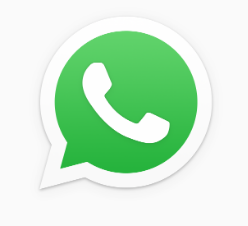New GST Rates: From Pre-Packaged Food Items to Hotel Rooms; List of Items That Becomes Expensive from Today
The decision to was made last month during the 47th GST meeting, which was presided over by Finance Minister Nirmala Sitharaman and attended by her state counterparts when they trimmed the exemption list and levied a tax on a variety of goods and services.
Customers will have to pay extra for home commodities, financial services, hospitals, and hotels as the Goods and Services Tax (GST) Council's decision goes into effect from Monday. Prices for some essential goods and services, including pre-packaged, labeled food products and hospital rooms, will rise beginning today.
The Council also eliminated duty inversion for commodities when input taxes were higher than output taxes.
"Specific pre-packaged and labeled commodities (without a registered brand name) like wheat, rice, maize, makhana, specified flours, and so on would be subject to 5% GST from July 18, 2022, raising the cost to the user," said Saurabh Agarwal, tax partner at EY India.
"It is critical for the industry to investigate if the specified pre-packaged goods are needed to have a declaration on them under the Legal Metrology Act, 2009," Agarwal added.
List of Items That Will Become Expensive
Customers would have to pay 5% GST on pre-packaged, labeled food goods such as atta, paneer, and curd.
A 5% GST will also be applied to hospital rooms with rents above Rs. 5,000.
Wi-Fi Speed Test
Hotel rooms with daily rates of up to Rs. 1,000, maps, and charts, including atlases, would be subject to a 12% Goods and Services Tax (GST).
A total of 18 percent GST would be applied on tetra packs and bank fees for cheque issuance (loose or in book form).
Printing, writing, or drawing ink; knives with cutting blades, paper knives, and pencil sharpeners; LED bulbs; and drawing and marking out devices will be taxed at 18% from today, up from 12% now.
Solar water heaters will now be subject to 12% GST, up from 5% previously.
Work contracts for roads, bridges, trains, metro, effluent treatment facilities, and crematoriums would also face a tax increase of 18% from the current 12%.
Renting a residential home to a commercial entity will be taxed at 18%, as will services supplied by regulators such as the RBI, IRDA, and SEBI.
Bio-medical waste treatment facilities will be subject to a 12% GST.
Non-ICU hospital rooms costing more than Rs. 5,000 per day would be subject to a 5% GST, with no input tax credit, up to the amount charged for the room.
List of Items That will Become Cheap
Taxes on ostomy appliances and ropeway transport of goods and passengers will be reduced to 5% from 12% beginning July 18.
Renting a truck or goods carriage with the cost of fuel included will now be charged at a reduced rate of 12% instead of 18%.
The GST exemption on air travel to and from the northeastern states and Bagdogra would be limited to economy class only.
From July 18, electric cars, whether or not equipped with a battery pack, will be eligible for the 5% GST discount.
Tags:
News


